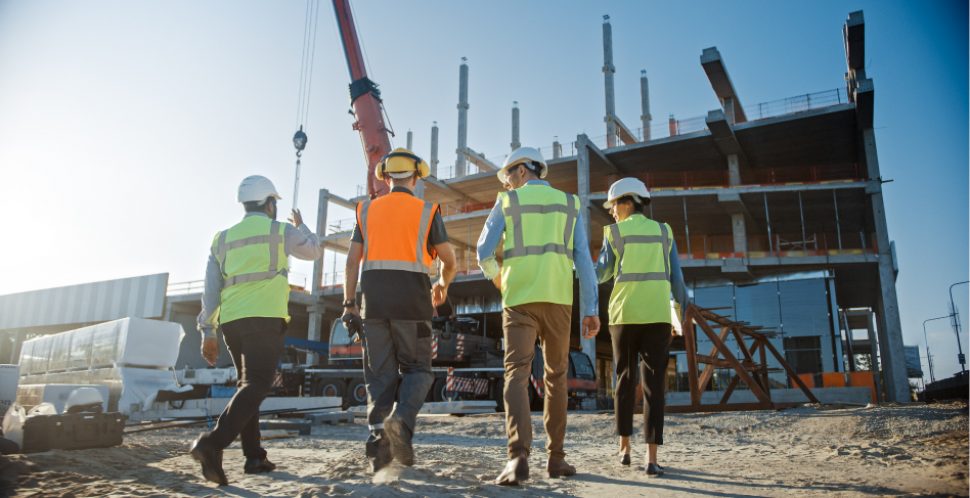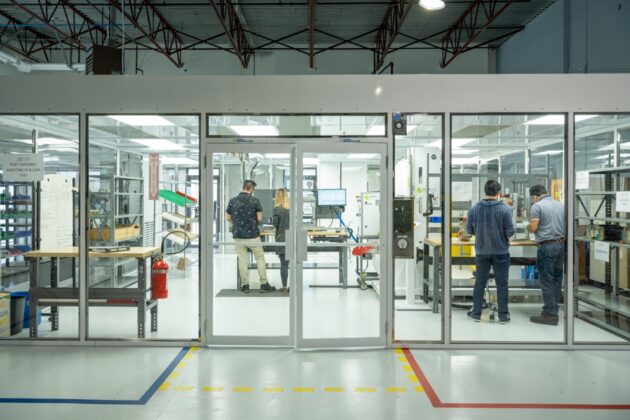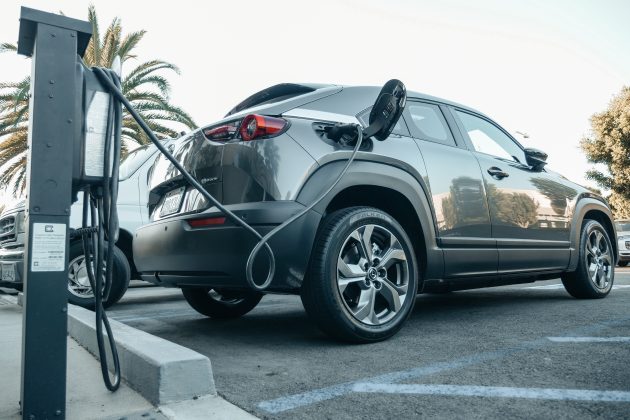Climate Emergency Action Plan Update
On November 17, 2020, Vancouver City Council approved the Climate Emergency Action Plan. In addition to unlocking the framework for businesses to explore new opportunities related to its goals, CEAP’s framework puts Vancouver on track to reduce our carbon pollution by 50% by 2030, in alignment with the findings of the United Nations Intergovernmental Panel on Climate Change to limit global warming to 1.5°C.
Learn More
To compound the yet unseen ripple effects of the pandemic, Canadian residents, businesses and industries have already lost billions from extreme weather events exacerbated by climate change.
The dangers present in the climate emergency are clear, especially for a world grappling with the catastrophic human cost and loss of life resulting from the novel coronavirus pandemic. As one of the fastest-warming countries in the world, and one of the highest per capita polluters in the world, Canadians and the Canadian economy will continue to suffer these climate impacts if we are not quick to act – and may face increasing international pressure to reduce our emissions.
Pre-COVID, Vancouver saw a gradual but clear trend of decoupling of greenhouse gas emissions (GHGs) growth from economic growth: the economy has expanded 30 percent since 2010 while carbon pollution fell by nine percent between 2007 and 2019. However, this trend will not be enough to meet our 2030 target of a 50 percent reduction over 2007 levels. Numerous scientific reports since 2018 have made it clear that almost every jurisdiction needs to do more. For its part, the City of Vancouver’s position is clear – it declared a climate emergency early in 2019.
More than 1,500 jurisdictions around the globe – mostly cities – have declared a climate emergency, signaling the global concern about the climate crisis and the need for accelerated, coordinated and innovative action to forge a path forward. In Vancouver, City staff came back to City Council with a Climate Emergency Response, which the City adopted in April 2019. The response included six big moves and fifty-three quick-start actions to dramatically reduce carbon pollution from buildings and transportation (the city’s largest sources), as well as to sequester carbon through conservation and restoration efforts.
Since then City staff have been hard at work on a comprehensive Climate Emergency Action Plan (CEAP). During the public engagement period from February to May 2020,City staff received nearly 17,000 comments in response to actions and ideas proposed as part of the plan. This input has helped shape the actions that City staff will bring forward to City Council for approval on November 3, 2020.
What is the plan?
Vancouver’s Climate Emergency Action Plan (CEAP) focuses on reducing carbon pollution from the city’s largest sources – buildings and transportation – which represent nearly all the carbon pollution produced in Vancouver. About 54 percent of our carbon pollution comes from burning natural gas used to heat space and water in our buildings, and approximately 39 percent of our emissions come from burning gasoline and diesel in our vehicles.
As part of CEAP, four of the six big moves will be brought forward to Council on November 3, and others will be activated in subsequent plans and policies. The goals, as they stand, are as follows:
- By 2030, 90 percent of people live within an easy walk and roll of their daily needs
- By 2030, two-thirds of trips in Vancouver will be by active transportation and transit
- By 2030, 50 percent of the kilometres driven on Vancouver’s roads will be by zero-emissions vehicles
- By 2030, halve carbon pollution from building operations from 2007 levels
- By 2030, reduce the embodied emissions from new buildings and construction projects by 40 percent compared to a 2018 baseline
- By fall 2021, develop a negative emissions roadmap that can be achieved by restoring forest and coastal ecosystems
What does this mean for business?
Like the Greenest City Action Plan (GCAP) before it, CEAP (along with other major planning processes, like Vancouver Plan) contains massive opportunities to reshape the City to better meet the needs of businesses and citizens alike. The Vancouver Economic Commission (VEC) will undertake research and scoping to work toward developing and implementing a Zero Carbon Economic Transition Strategy and Action Plan, as a supporting effort to CEAP, which will aim to help maximize the economic benefits of the City’s climate actions.
In reading and supporting the development of the plan, VEC believes there are five key business opportunities being generated by CEAP as proposed, including:
- Creating new business opportunities — Whether through reshaping our land-use patterns to make it easier to live, work, and play closer to home, or creating new requirements and tools for people to improve their homes and business premises, CEAP will create innumerable new opportunities for entrepreneurs to build or expand businesses. As VEC found in 2019, the regional implementation of the BC Energy Step code has created well over $3 billion in consumer demand for new high-performance building products. Every design, sale, and installation of products and services related to elements of CEAP is an opportunity to grow new business lines.
- Increasing brand power — In 2015, VEC commissioned an independent study to assess Vancouver’s brand value. Brand Finance estimated Vancouver’s brand valuation to be over $31 billion dollars at the time. Many companies, particularly those headquartered here and doing business overseas, directly benefit from being associated with this brand, and as Vancouver grows and attracts new businesses and workers here, the global recognition of our livability and climate action are assets in helping us remain strong and competitive.
- Reducing Operating Costs — Energy is expensive. For many businesses, the fuel and electricity for their buildings and vehicles are some of their largest costs aside from labour and inventory. CEAP’s focus on improving the efficiency of new and existing buildings while streamlining land-use and transportation choices will help reduce the costs of doing business in the city.
- Reducing climate risks — From the Bank of Canada, all the way down to individual landowners and professionals, the risks of climate change are becoming readily apparent, particularly to the financial industry. Vancouver’s actions to reduce our emissions are part of the global efforts to prevent catastrophic global warming and damages — in Vancouver alone, we are already going to have to spend nearly a billion dollars to protect against coastal flooding between now and 2080. We want to eliminate the need for as many of those investments as possible.
- Reducing future regulatory and financial risks — Climate action is a global movement. While there will be setbacks and challenges, the perspective from all parties at every level of government in Canada, and most governments around the world, is that climate action is an imperative for every single individual and organization. By leading government responses to the climate emergency, Vancouver is giving its business community more time to prepare for future provincial and national regulations or policies. By being in the vanguard of climate action policy and initiatives, Vancouver’s economy will continue to lead the country to its zero carbon future, and benefit from many first-mover advantages.
Where do we go from here?
CEAP will go to Council on November 3. While consultations for the CEAP framework and plan have concluded, all members of the public have the opportunity to speak before Council. As VEC embarks to research and scope out what the Zero Carbon Economic Transition Strategy and Action Plan will look like, and the City’s ongoing climate action work continues, we welcome collaboration and input from all Vancouver businesses and residents.
Here’s what you can do to get involved:
- Write a letter to Council
- Speak to Council
- To read the whole Council report, look for the Council link on or after October 27.



